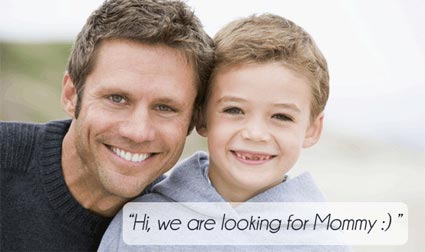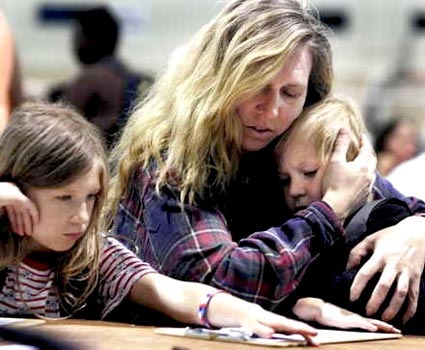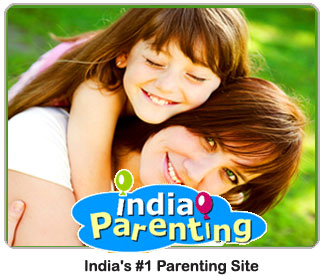Loss of a spouse does not mean end of life and happiness for the single parent. Coping with the loss due to death of a spouse takes time as the healing has to take place at the emotional level. The need for companionship is human nature as man is a social animal. Looking for a partner or dating one needs one to be emotionally and mentally prepared. Here are some suggestions to help in dating after the death of a spouse.Losing a spouse is definitely traumatic and the healing of the emotional wounds also take a lot of time. But relationships in human life are important and the very idea of dating comes from the need for companionship. While dating someone, you need to be sure that you are indeed emotionally prepared to start and commit to a new relationship. Usually people get flustered with a simple query in their minds like, who should be the right person, am I doing the right thing or how long should I wait following the death of my husband or wife? These queries become magnified especially if you are with a kid. The situation gets a bit tougher when you are married for a considerable long period of time. When you stay with a person for a number of years, you might feel that it is really hard to find another compatible partner or whether the child will also develop an emotional connect with him or her. These thoughts can cause an initial aversion; however, once you are clear about a few thoughts, dating can seem to be as exciting as ever. In this articleAllow Yourself to GrieveTry to Let GoThe Kid FactorAccept the Need for CompanionshipAllow Yourself to Grieve You had been habituated to your previous relationship and following the demise of your spouse, you would naturally go into mourning. This is a time that you get to spend with yourself, calm your nerves and attempt to think of your days ahead. You will have hoards of thoughts clouding your mind; this is the time that you should accept your feelings as you deal with your sorrow and prepare yourself for another relationship. Try to Let Go Letting go of the past is very important if you want to make place for the new. This of course does not entail that you stop loving your deceased spouse. It merely means that you are accepting the fact that the relationship is over due to death and you are harbouring a strong desire to move on with your life. The Kid Factor Talk it out with your kid. Bring your kid and your date so that they get to know each other. Kids are more mature than we take them to be. You may or may not seek the approval of the kid regarding your date but you certainly want to know what he thinks of the idea. If you are dating person whom the kid detests, it will have a negative impact on his whole sense of being, he will feel ignored and not loved. Such an emotional build can spell doom for the future mental well-being of the child. He might grow up to be commitment phobic and an abuser of human relationships if he finds you a serial dater with no intentions of building a family. So, be careful on what vibes you give to your kid. On the other hand if your kid also grows to like the person you are dating, he might initiate the chances of a complete family without your having to take the first step at all! Accept the Need for Companionship It is natural to feel a vacuum in your life following the death of your spouse. This is the time when you feel the need for companionship and the desire to have someone special. This can be an activity partner, a casual friendship or a serious one. It is natural for you to lose a bit of your composure in emotional situations following the death of your spouse but at the same you must keep in mind that there are also elements in the world who are vying to take advantage of your vulnerability. The onus lies upon you on how you protect yourself from them. Once you are in control of yourself, you will find it easier to distinguish between scam artists and people who are compassionate. Remember, you have the huge responsibility of ensuring the well-being of your kid as well the duty to take care of yourself too.
Loss of a spouse does not mean end of life and happiness for the single parent. Coping with the loss due to death of a spouse takes time as the healing has to take place at the emotional level. The need for companionship is human nature as man is a social animal. Looking for a partner or dating one needs one to be emotionally and mentally prepared. Here are some suggestions to help in dating after the death of a spouse.Losing a spouse is definitely traumatic and the healing of the emotional wounds also take a lot of time. But relationships in human life are important and the very idea of dating comes from the need for companionship. While dating someone, you need to be sure that you are indeed emotionally prepared to start and commit to a new relationship. Usually people get flustered with a simple query in their minds like, who should be the right person, am I doing the right thing or how long should I wait following the death of my husband or wife? These queries become magnified especially if you are with a kid.
The situation gets a bit tougher when you are married for a considerable long period of time. When you stay with a person for a number of years, you might feel that it is really hard to find another compatible partner or whether the child will also develop an emotional connect with him or her. These thoughts can cause an initial aversion; however, once you are clear about a few thoughts, dating can seem to be as exciting as ever.
Allow Yourself to Grieve
You had been habituated to your previous relationship and following the demise of your spouse, you would naturally go into mourning. This is a time that you get to spend with yourself, calm your nerves and attempt to think of your days ahead. You will have hoards of thoughts clouding your mind; this is the time that you should accept your feelings as you deal with your sorrow and prepare yourself for another relationship.
Try to Let Go
Letting go of the past is very important if you want to make place for the new. This of course does not entail that you stop loving your deceased spouse. It merely means that you are accepting the fact that the relationship is over due to death and you are harbouring a strong desire to move on with your life.
The Kid Factor
Talk it out with your kid. Bring your kid and your date so that they get to know each other. Kids are more mature than we take them to be. You may or may not seek the approval of the kid regarding your date but you certainly want to know what he thinks of the idea.
If you are dating person whom the kid detests, it will have a negative impact on his whole sense of being, he will feel ignored and not loved. Such an emotional build can spell doom for the future mental well-being of the child.
He might grow up to be commitment phobic and an abuser of human relationships if he finds you a serial dater with no intentions of building a family. So, be careful on what vibes you give to your kid. On the other hand if your kid also grows to like the person you are dating, he might initiate the chances of a complete family without your having to take the first step at all!
Accept the Need for Companionship
It is natural to feel a vacuum in your life following the death of your spouse. This is the time when you feel the need for companionship and the desire to have someone special. This can be an activity partner, a casual friendship or a serious one. It is natural for you to lose a bit of your composure in emotional situations following the death of your spouse but at the same you must keep in mind that there are also elements in the world who are vying to take advantage of your vulnerability.
The onus lies upon you on how you protect yourself from them. Once you are in control of yourself, you will find it easier to distinguish between scam artists and people who are compassionate. Remember, you have the huge responsibility of ensuring the well-being of your kid as well the duty to take care of yourself too.
































